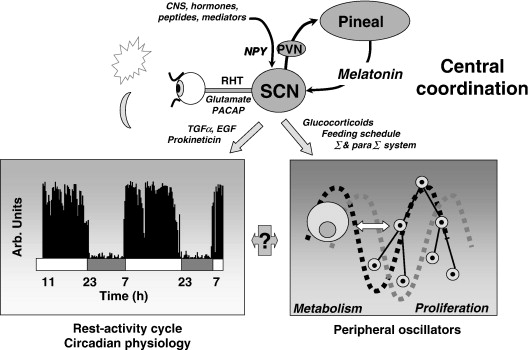Brain biological clocks
An internal system that controls an organism's circadian rhythms, the cycles of behavior those happen daily in a day. In mammals the biological clock is located near the point in the brain where the two optic nerves cross. In several birds the biological clock is located in the pineal gland. In fungi and protists the individual cells themselves regulate circadian rhythms.

The biological clock, in humans and many other animals is a complex genetic mechanism tuned to the 24-hour day and regular cycles of light, dark and sleep. It influences a broad range of biological procedure from fertility to hormone production, feeding patterns, DNA repair, stress reactions, sleep, even the effectiveness of medications. In humans, researchers have created strong correlations among disrupted aging, clock mechanisms and neurologic diseases like as Huntington’s and Alzheimer’s disease.